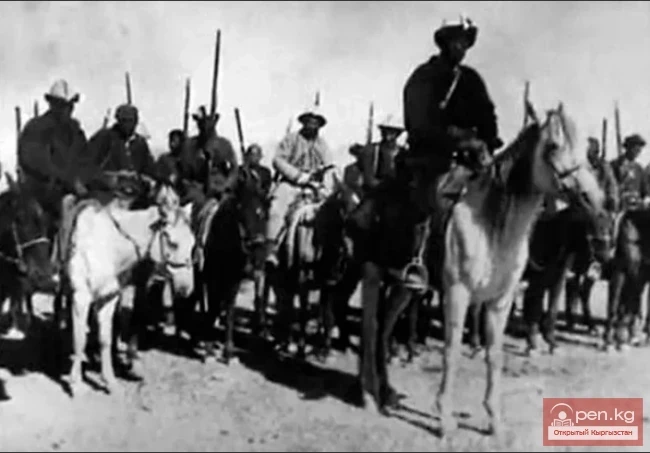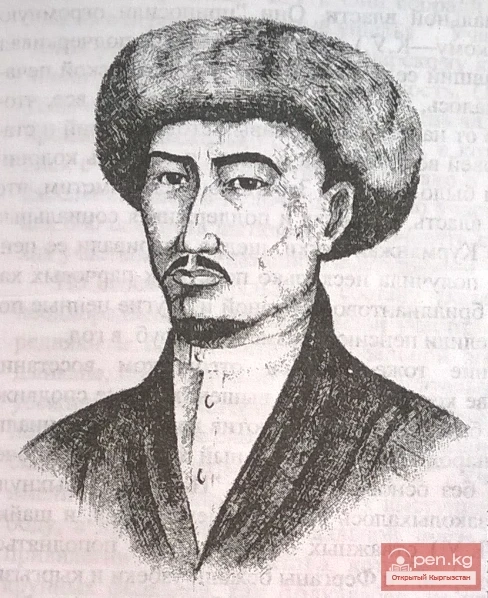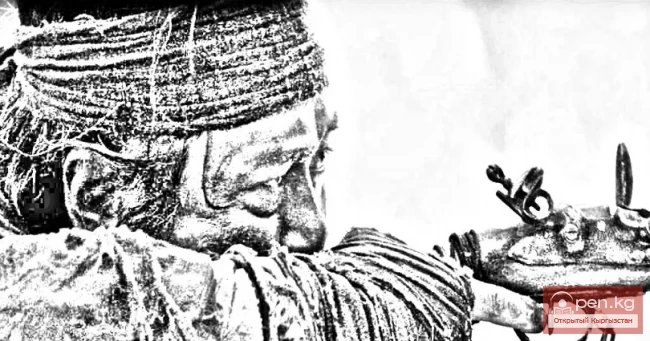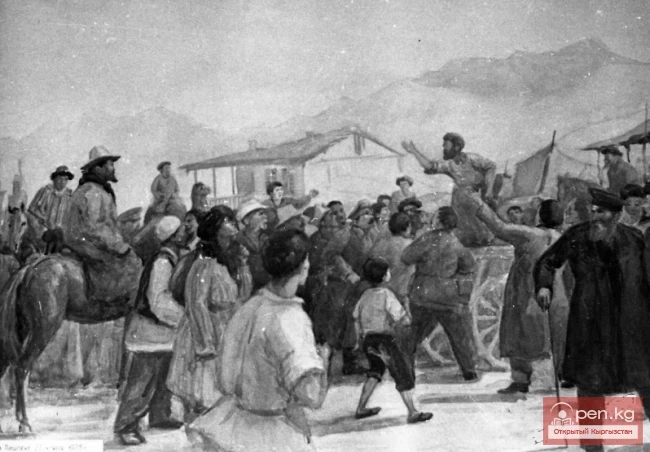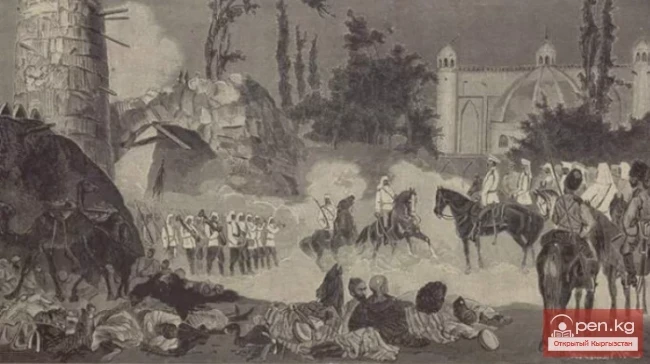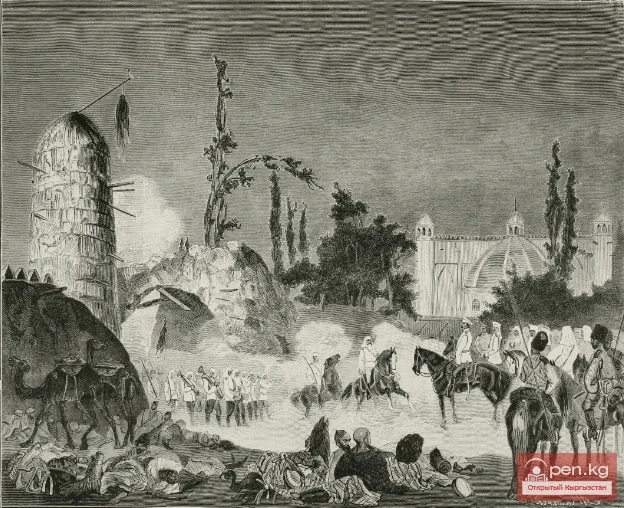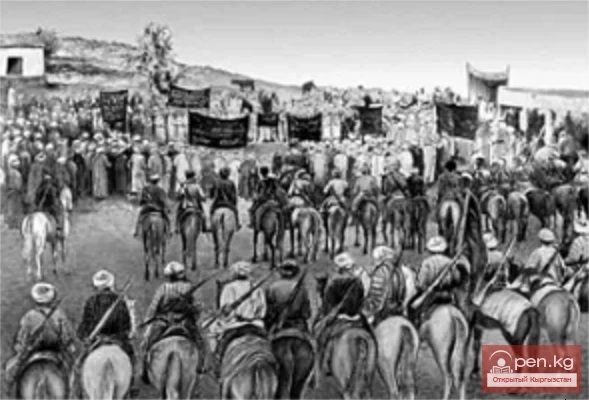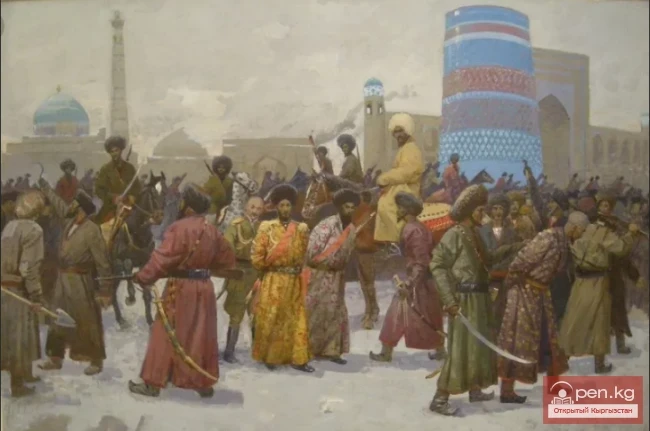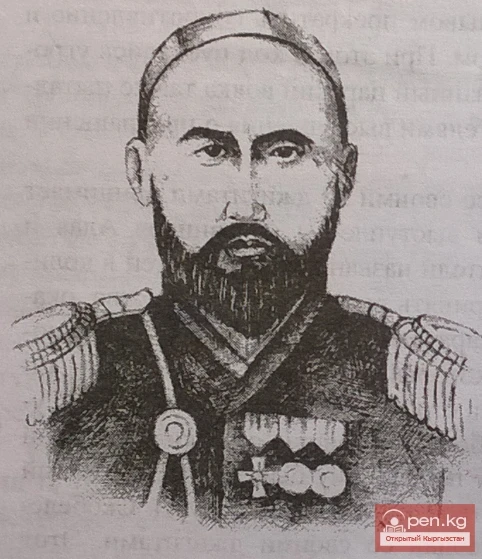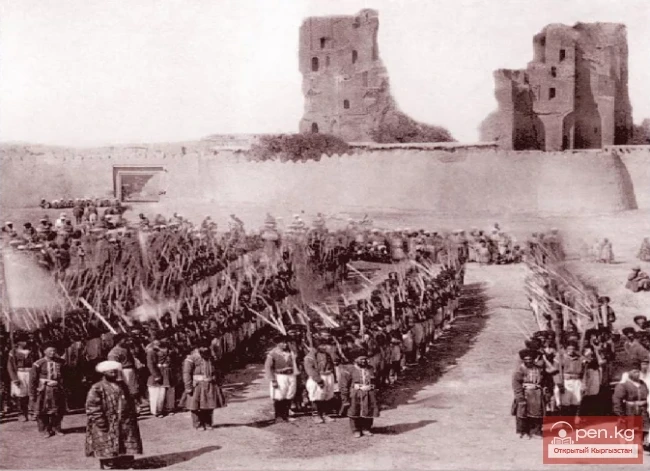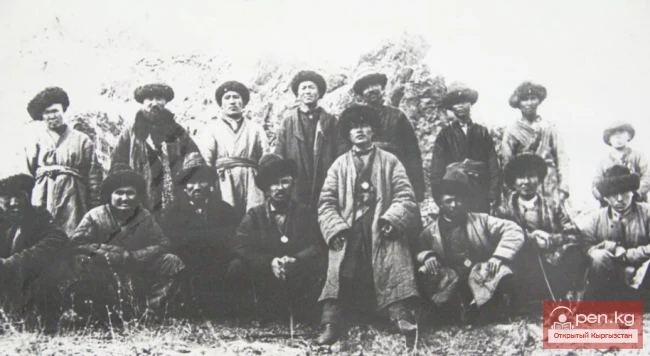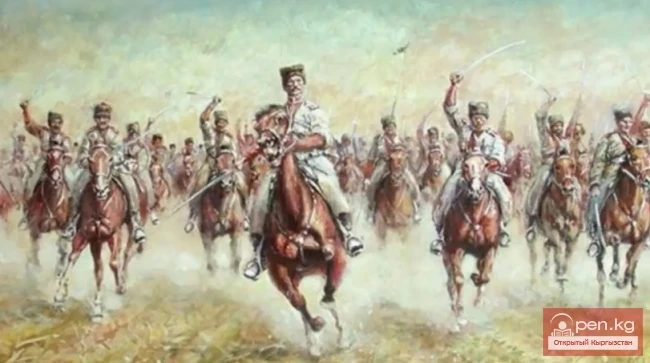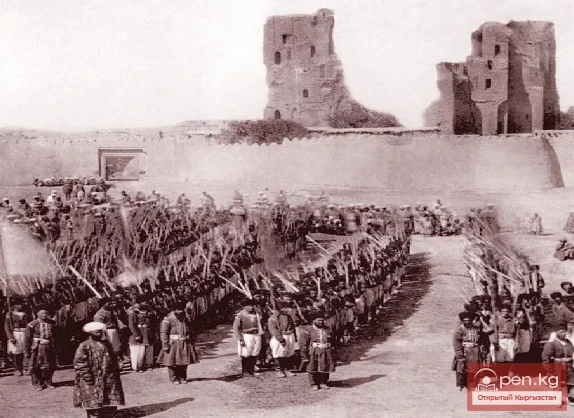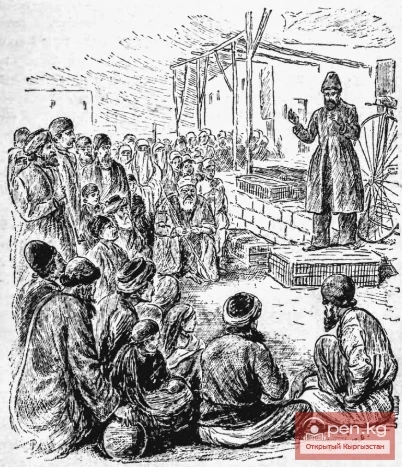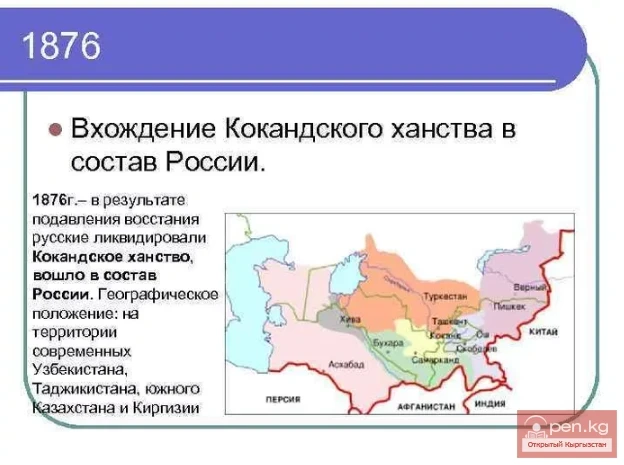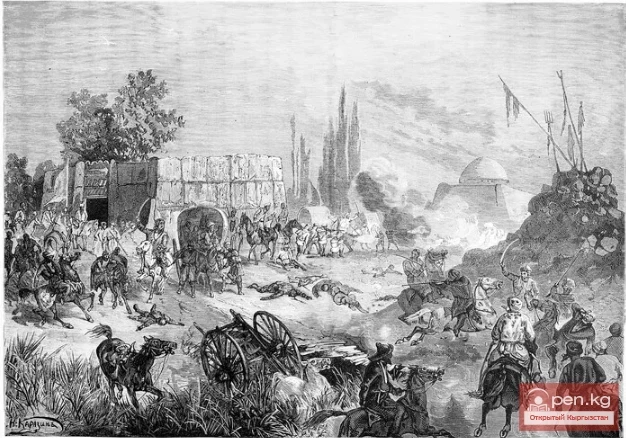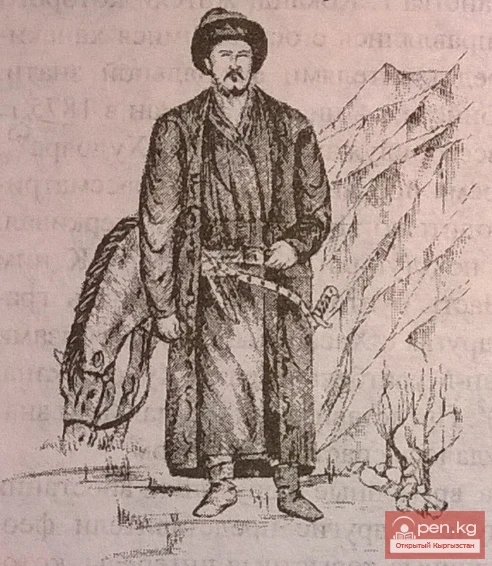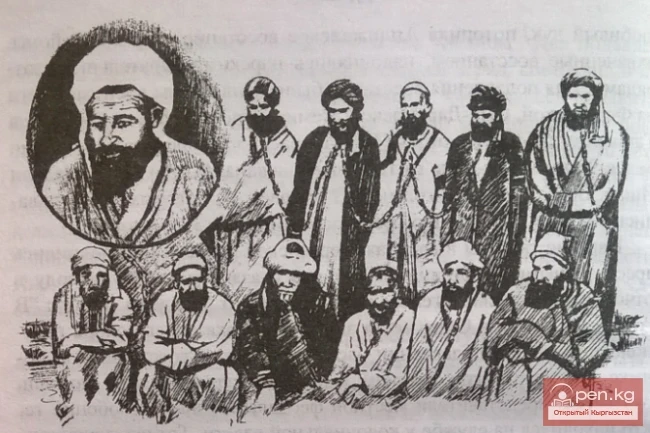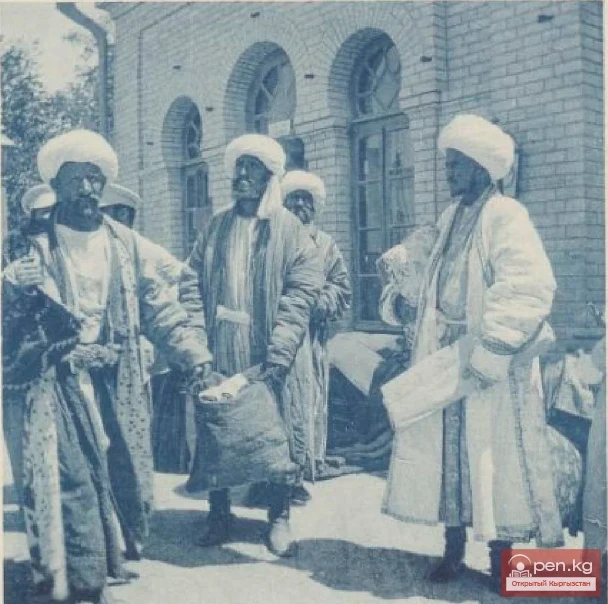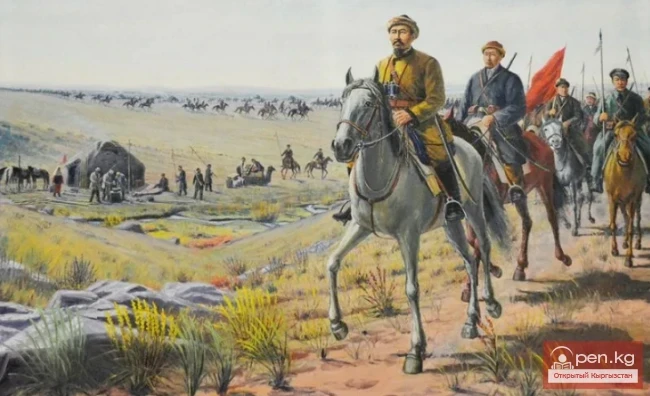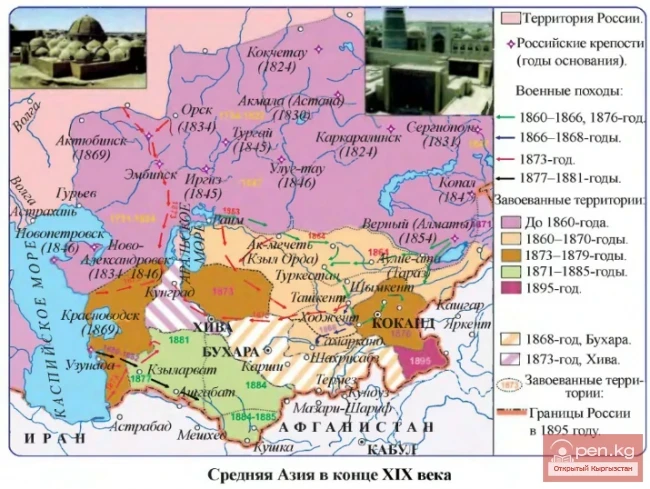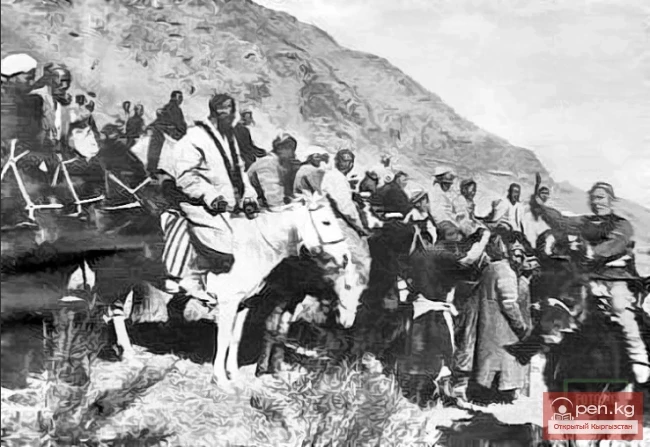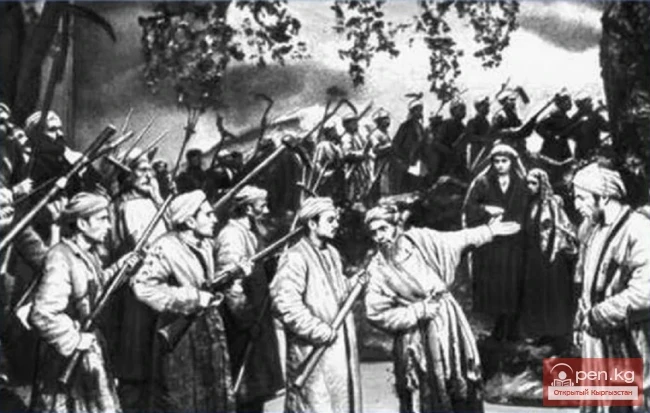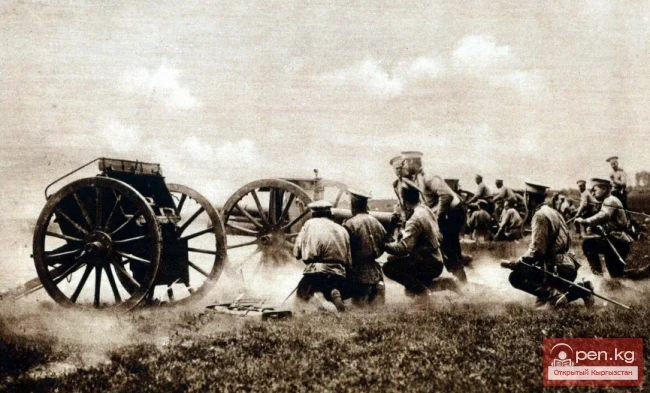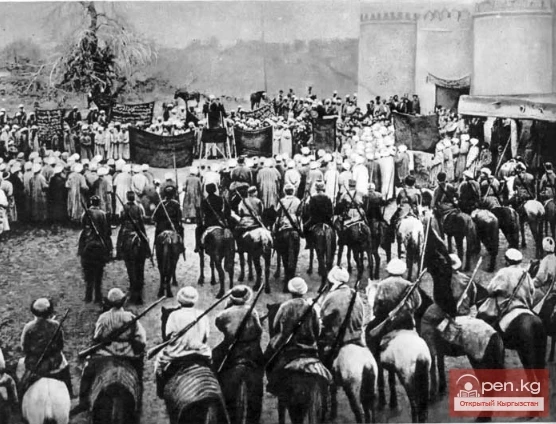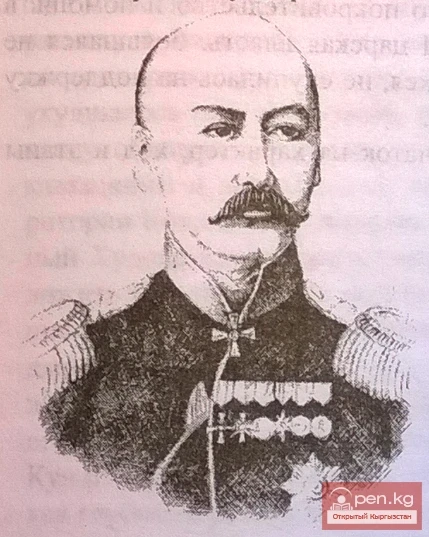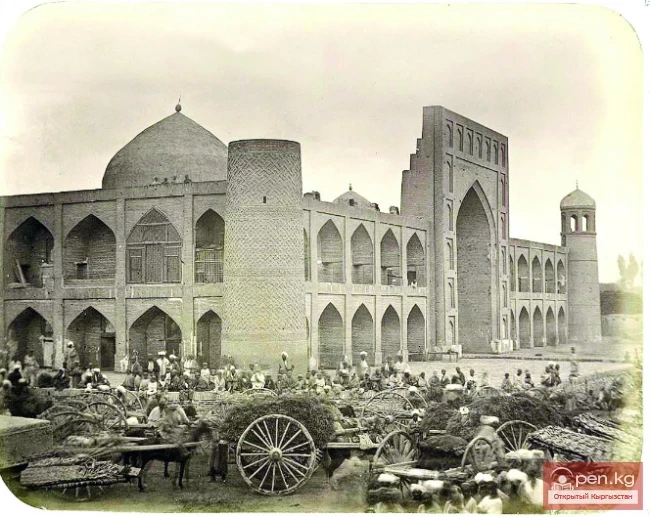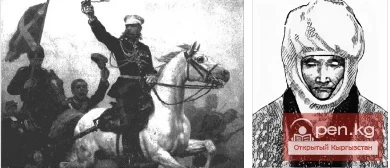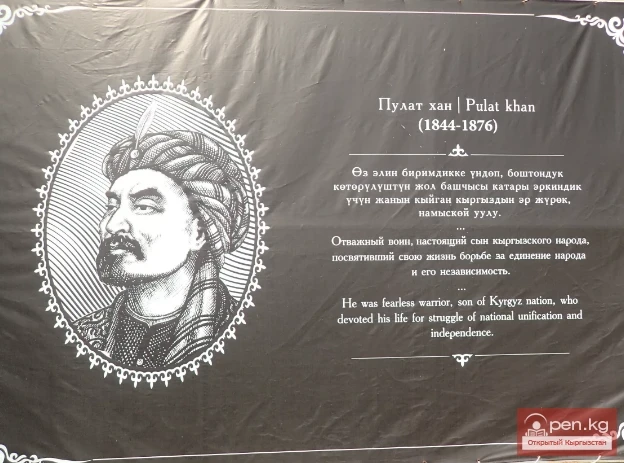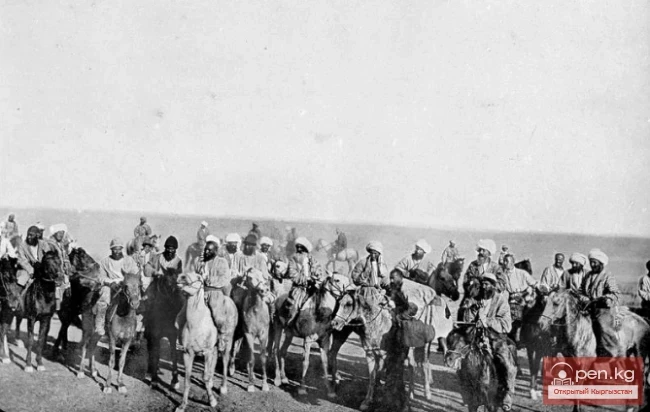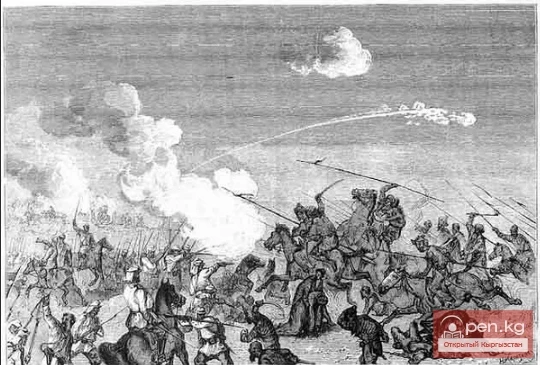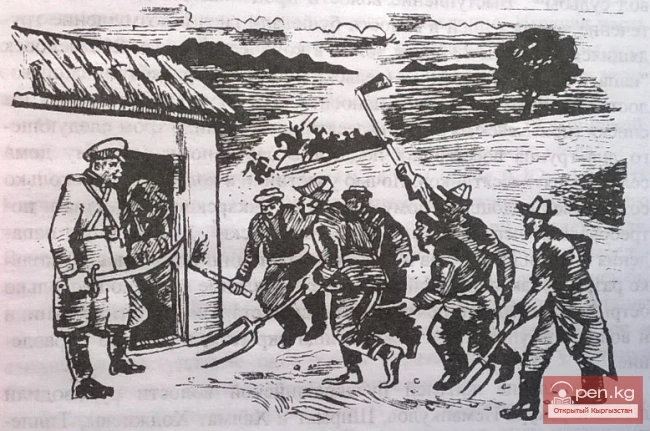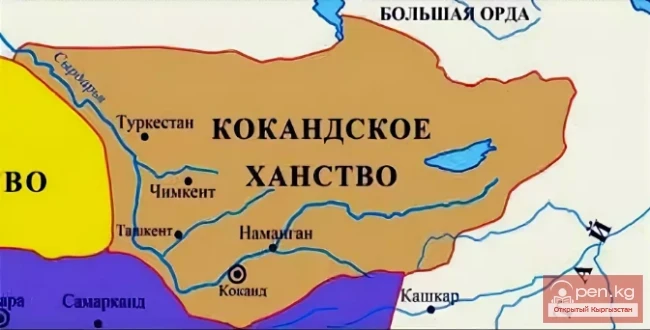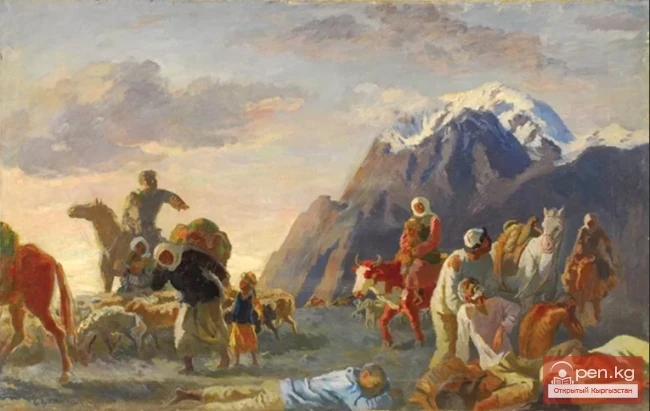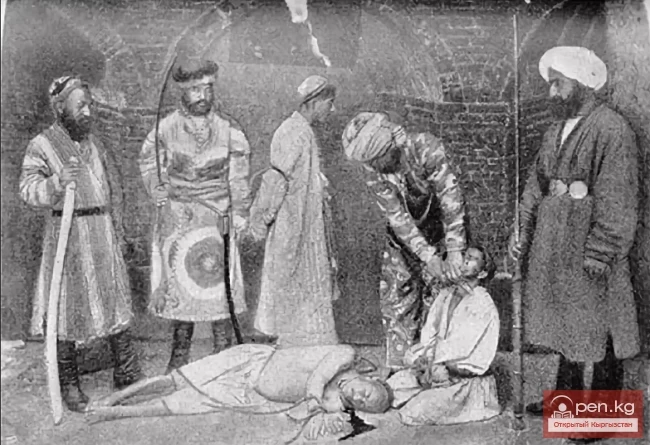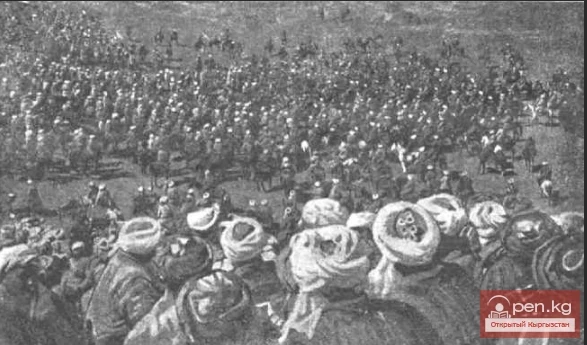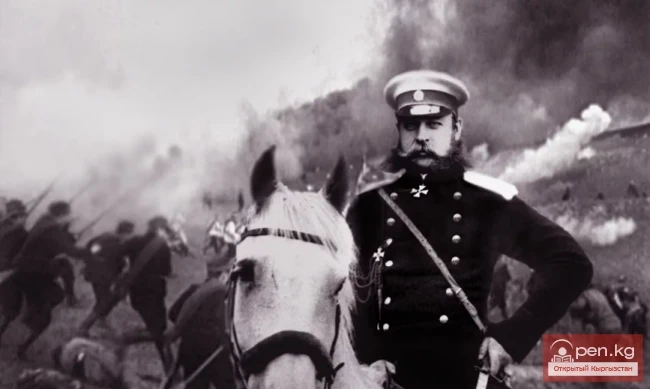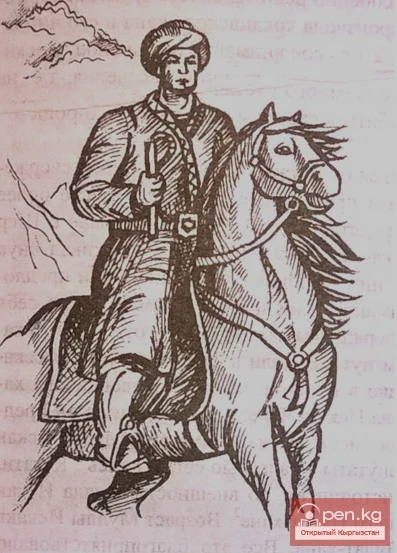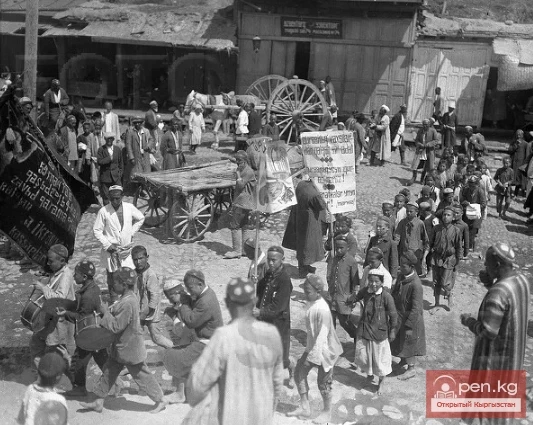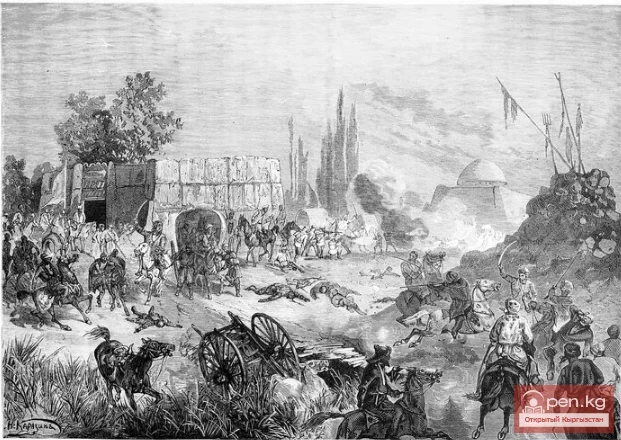Protests Against Tsarist Colonial Power by the Kyrgyz
The anti-colonial protests were also a reflection of the uprising of 1873–1876, led by the aforementioned associates of Pulat-khan. It was directed against the tsarist colonial authority and had a national liberation character. Its eyewitness V.L. Tageev justifiably wrote: "An uprising erupted in Alai. The mountain settlement of Alai boiled and stirred, and bands (a group of rebels—K.U.) of brave batyrs began to swell with new forces. Uzbeks and Kyrgyz fled from the conquered Fergana, and all of this flowed to the loud call of Abdullabek, echoing from the heights of snowy Alai." Another contemporary of this protest noted that local batyrs and the sons of Kurmanjan Datka "decided to defend their native Alai from the invasion of the Russians (tsarist punitive forces—K.U.). They gathered the nomads and occupied all the main passes and mountain gorges." The participants of the protest, showing stubborn resistance to the tsarist punitive detachment, demonstrated great courage and perseverance. One of the participants of the punitive detachment wrote about this: "In the mountains of Little Alai, several clashes occurred, in which the Kara-Kyrgyz fought with desperate tenacity." However, not all the population of Alai and Gulcha participated in this protest. As mentioned above, 600 families attempted to migrate to the Russian detachment, unwilling to take part in the mentioned protest!
In terms of its social composition, the mentioned protest was heterogeneous. It included working nomads, middle peasants, and representatives of the feudal nobility, as well as Uzbek dykans, pursued by the tsarist punitive detachment and seeking refuge in the high mountainous Kyrgyz regions. Its driving force was ordinary herders and impoverished dykans, whom the tsarist officials referred to as "vagrants." The participants of the protest did not have a unified goal. The working class fought for national freedom, while the representatives of the feudal nobility tried to defend their privileges and advantages that they had previously enjoyed. Large feudal lords like Abdullabek were dissatisfied with serving the tsarist authority, which at best could offer him the position of a volost manager, nothing more." In this regard, Yuvachev I., who was close to Kurmanjan Datka and her sons, wrote that Abdullabek did not want to "stoop to the role of volost elder, to collect tent taxes for the Russian (tsarist—K.U.) treasury." And several representatives of the feudal nobility who participated in this protest hastened to ingratiate themselves with the tsarist authority after the defeat. The social antagonism and different goals of its participants played a significant role in the defeat of the mentioned protest.
Defeats of Abdullabek by the Punitive Detachment of Skobelev
